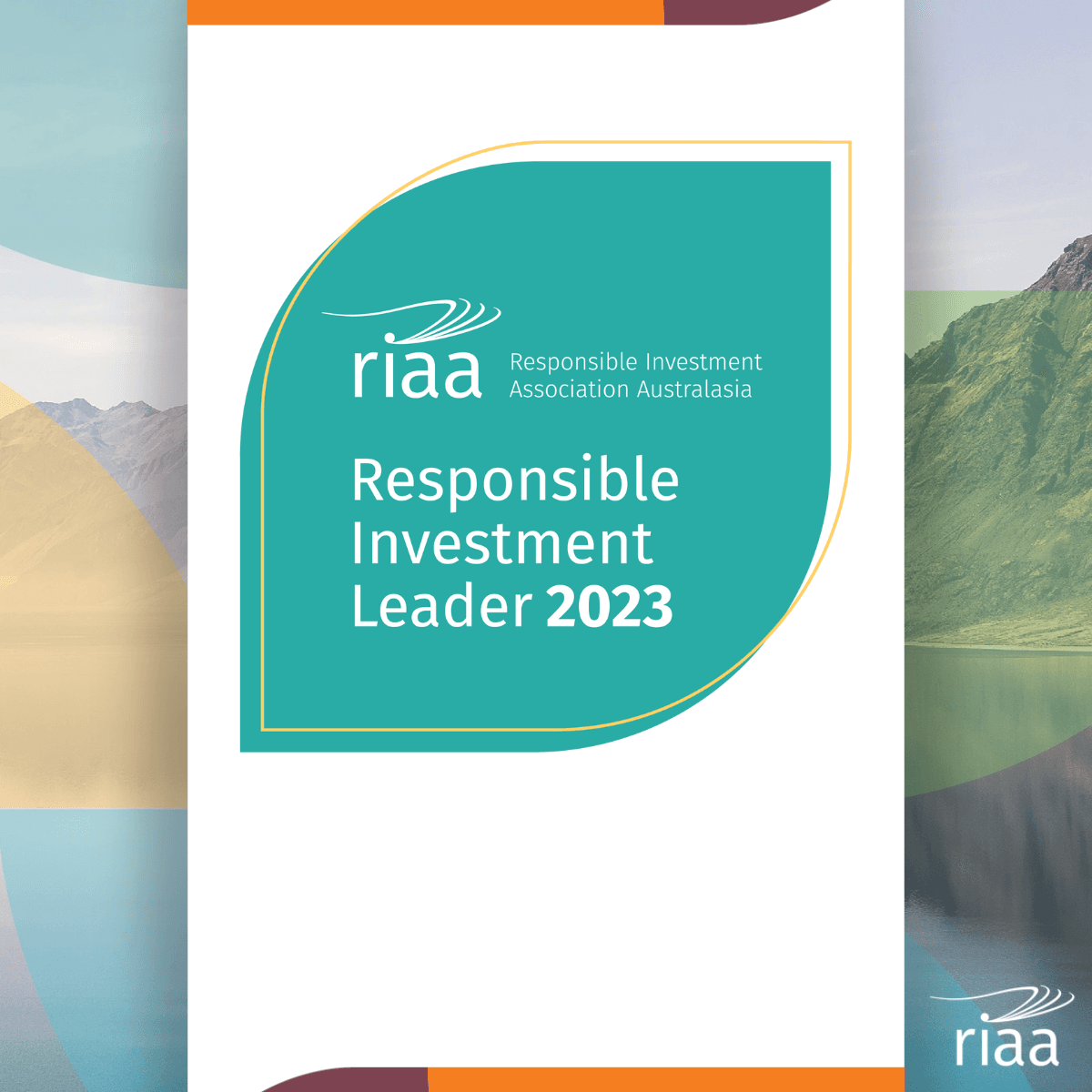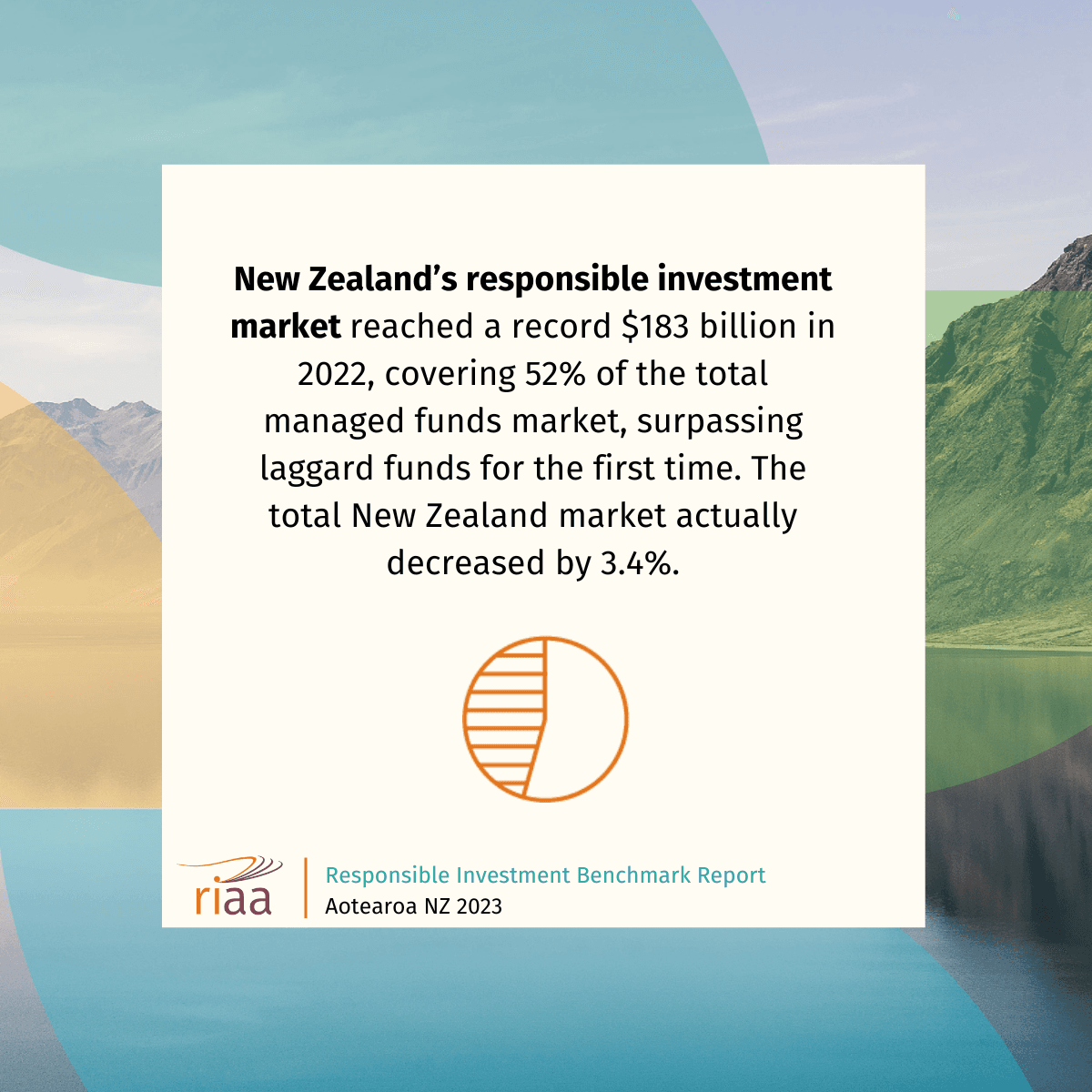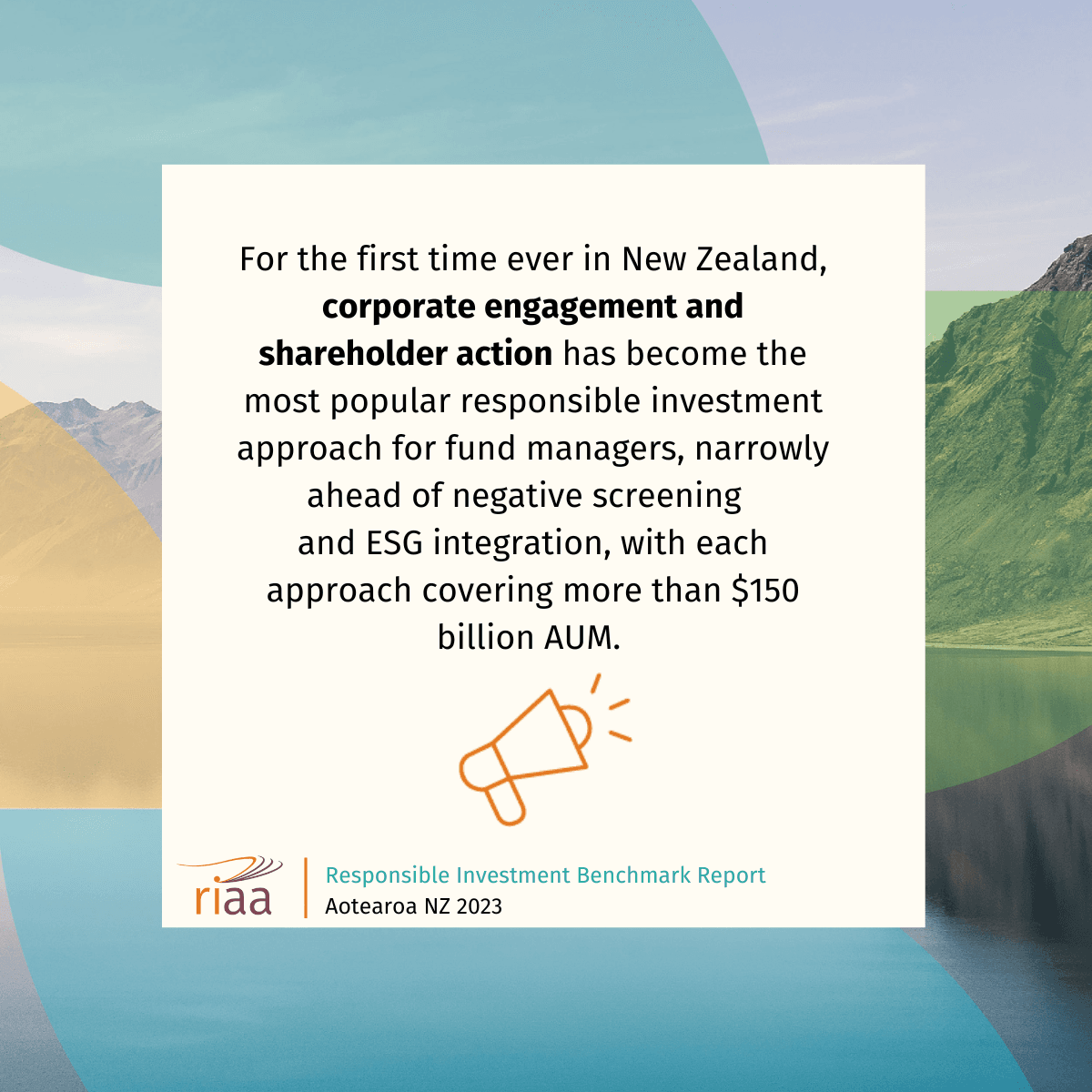Insights
Pathfinder named as a Responsible Investment Leader
Pathfinder named as a Responsible Investment Leader and good news for responsible investment funds.



Pathfinder has been named a Responsible Investment Leader by the Responsible Investment Association Australasia (RIAA) in its landmark annual study. This recognises our commitment to responsible investing and attributes as an investment manager.
We are placed in the top 20% of responsible investors assessed by RIAA demonstrating leading practice in our commitment to responsible investing; our explicit consideration of environmental, social and governance factors in investment decision making; our strong and collaborative stewardship; and our transparency in reporting activity, including the societal and environmental outcomes being achieved.
And further good news, is that The Responsible Investment Benchmark Report Aotearoa New Zealand 2023 shows that responsible investment funds in New Zealand have overtaken traditional funds for the first time, reaching a record $183 billion in 2022, while traditional investments dropped 9% to $169 billion.
The report shows excellence in responsible investment is typically beneficial for long-term performance, with products certified by RIAA as quality, true-to-label responsible investments consistently matching or outperforming mainstream products over the medium and longer terms.
In New Zealand, 64% of KiwiSaver funds are now certified by RIAA. However, despite the longer-term positive outlook for sustainable funds, Russia’s invasion of Ukraine affected short-term performance. Mining and energy stocks performed more strongly across the globe in 2022 – driven by the Ukraine war and subsequent surge in energy and fossil fuel valuations. By comparison, over 2022 responsible investment products saw lower average short-term (one-year) returns.
Despite a revised scorecard with higher expectations, the number of managers reaching the threshold for demonstrating leading practice grew, with 16 fund managers named as Responsible Investment Leaders and another six earning the new Responsible Investor designation.
For the first time ever in Aotearoa, corporate engagement, and shareholder action – also known as stewardship – has become the most popular responsible investment approach for fund managers, overtaking negative screening and ESG integration. This follows the launch of the Aotearoa New Zealand Stewardship Code in September 2022, an industry initiative that gave investors a clear framework for using their influence to steer the companies they own on critical ESG issues.
Norms-based screening – the screening of investments based on international norms and conventions, such as those defined by the UN – grew almost eightfold in 2022, from $16 billion AUM in 2021 to $125 billion. This approach hasn’t always been popular among New Zealand investment managers. Changes to KiwiSaver requirements from the end of 2021 mean investment managers are now required to exclude companies involved in the production of fossil fuels and illegal weapons, spurring growth in screening based on this ‘norm’.
Positive screening grew over threefold while impact investing grew 38% in 2022. But at $13 billion and $11 billion AUM respectively, capital flows to these strategies remain well below investor expectations, with recent research highlighting surging demand for positive outcomes.
RIAA’s Benchmark Report is the most comprehensive review of the responsible investment sector in New Zealand, with the 2023 report reviewing the investment practices of 70 investment managers.
Read the report here: https://responsibleinvestment.org/resources/benchmark-report/
We asked Kate Brownsey, Pathfinders ESG Analyst what this RIAA report means to the average investor?
This is a reflection of the continuing rise in demand from investors, driven in part by the growing acceptance that ESG factors impact financial performance, and the expanding recognition that to manage someone’s money with their best financial interest in mind, ESG factors can, and should, be considered.
But the rapid rise of funds marketed as responsible, ethical, sustainable, impact etc., along with poor general understanding of these investment products brings heightened investor concern over greenwashing, which limits the continued growth of responsible investment strategies. While more investors are integrating ESG data into their investment processes, they are often limited by insufficient non-financial sustainability-related skills and expertise. This can lead to ‘unintentional’ greenwashing, from misjudging clarity and evidentiary support.
As the pace of responsible investment continues to rise, bringing increased greenwashing risk, retail investors should critically assess fund offerings for greenwashing, but can continue to have confidence that responsibly investing does not have to bring decreased performance, and in fact can bring outsized long-term returns.


